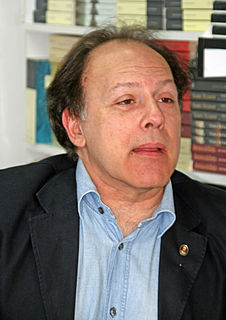A Quote by Horace
Let him who has once perceived how much that, which has been discarded, excels that which he has longed for, return at once, and seek again that which he despised.
Related Quotes
Books are faithful repositories, which may be awhile neglected or forgotten; but when they are opened again, will again impart their instruction: memory, once interrupted, is not to be recalled. Written learning is a fixed luminary, which, after the cloud that had hidden it has passed away, is again bright in its proper station. Tradition is but a meteor, which, if once it falls, cannot be rekindled.
The truth never shines forth, as the saying goes, because the only truth is that which is known to no one and which remains untransmitted, that which is not translated into words or images, that which remains concealed and unverified, which is perhaps why we do recount so much or even everything, to make sure that nothing has ever really happened, not once it's been told.
Art is a creative effort of which the wellsprings lie in the spirit, and which brings us at once the most intimate self of the artist and the secret concurrences which he has perceived in things by means of a vision or intuition all his own, and not to be expressed in ideas and in words-expressible only in the work of art.
It seems that certain transcendental realities emit rays to which the masses are sensitive. That is how, for example, when an event takes place, when at the front an army is in danger, or defeated, or victorious, the rather obscure news which the cultivated man does not quite understand, excite in the masses an emotion which surprises him and in which, once the experts have informed him of the actual military situation, he recognizes the populace's perception of that "aura" surrounding great events and visible for hundreds of kilometers.
It is said an Eastern monarch once charged his wise men to invent him a sentence to be ever in view, and which should be true and appropriate in all times and situations. They presented him the words, "And this too, shall pass away." How much it expresses! How chastening in the hour of pride! How consoling in the depths of affliction!
A good author, and one who writes carefully, often discovers that the expression of which he has been in search without being able to discover it, and which he has at last found, is that which was the most simple, the most natural, and which seems as if it ought to have presented itself at once, without effort, to the mind.
The first (lesson) which we meet again and again in history, is that once the dole or similar relief programs are introduced, they seem almost inevitably - unless surrounded by the most rigid restrictions - to get out of hand. The second lesson is that once this happens the poor become more numerous and worse off than they were before, not only because they have lost self-reliance, but because the sources of wealth and production on which they depend for either doles or jobs are diminished or destroyed.







































